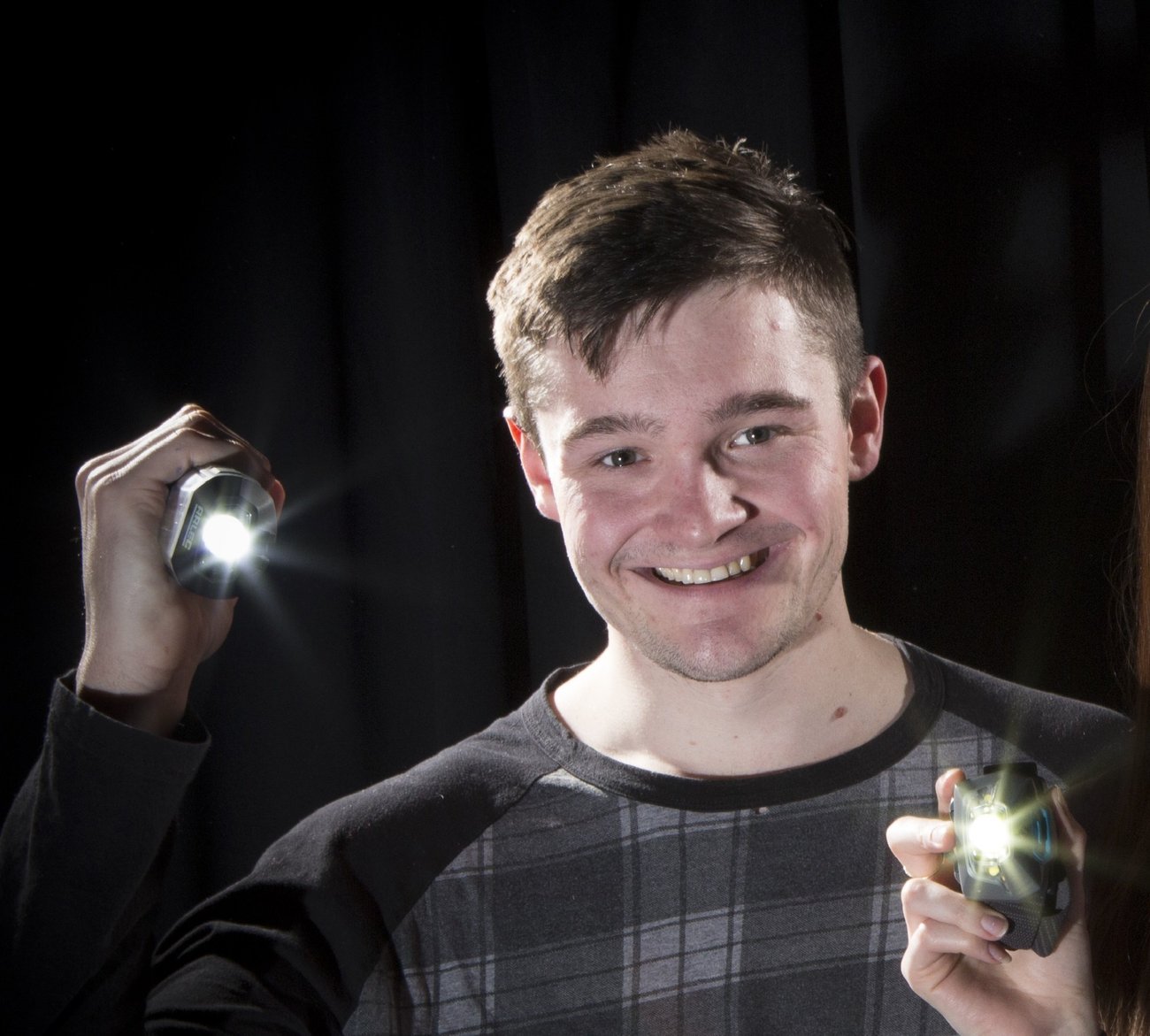University of Canterbury student sets sights on helping those with epilepsy with 3D-printed contact lenses

University students inventing things isn’t exactly a new concept, no matter where in the world the university is located. But not too many university students have the same bragging rights University of Canterbury student Logan Williams now has – after all, they haven’t invented 3D-printed, polarised contact lenses that can help prevent certain kinds epileptic seizures.
Williams’ 3D-printed polarised contact lenses providing sufferers of photosensitive epilepsy – where flashing light can cause epileptic seizure – with a tool to overcome the threat of the condition. Williams, 22, says he was inspired by the lack of non-medical prevention available to address the condition, and calls the lenses he has created Polar Optics. “I was inspired to develop Polar Optics by one of my close friends who suffers from photosensitive epilepsy,” he says. “The only treatment that gives sufferers some form of protection against the threat of a fit is medication, which can restrict diet, lifestyle and have other adverse potential side effects.’
And that’s not all. “Polar Optics mitigates environmental threats, enabling sufferers to go about their daily lives without fear of a seizure,” he says. “It has the potential to really make a difference to people all over the world with photosensitive epilepsy, and will also help anyone who suffers from headaches and migraines from bright light.”
Environmental threats include strobe lighting, but also walking past a line of trees which cast shadows with a flashing effect. The polarised contact lenses help through a process known as refraction, Williams says. “Polar Optics work by refracting the light entering the sufferer’s vision and dampening the intensity of the light. This departmentalises the light wave, which has far less strength on the entire neurological system and gives wearers the vital seconds to close their eyes or move away from the threat. It also provides polarisation for the full spectrum of vision and – the most vulnerable – peripheral vision.”
In his fourth year of a Master of Science degree in Applied Psychology at UC, Williams is in the process of commercialising Polar Optics, with the aim of making the lenses accessible and affordable for those affected by photosensitive epilepsy. “I hope to transition the innovative technology of Polar Optics into a viable New Zealand company,” he says. “I am currently working with a manufacturing company in Europe to develop a wearable prototype for Polar Optics. This is a novel, unique application of Polar Optics unlike anything currently implemented around the globe.”
This wouldn’t be the first time Williams has launched a company, either. He has already successfully launched a company based on one of his developments, Biome, which manufactures biodegradable products such as plastic and fabrics from the invasive pest-algae Didymo. That idea earned Williams first place and a National Merit Award at the Eureka Science and Innovation Competition, and was a finalist at the New Zealand Top Student Award 2017. If that’s not enough, Williams also received First Place and People’s Choice through the UCE Summer Startup Programme and a UC Innovators’ Summer Startup Scholarship through the UC Centre of Entrepreneurship to develop his company.
UC Centre for Entrepreneurship incubator manager Michelle Panzer says the programme was established specifically to help students like Williams realise the commercial potential of their innovations. “What gives Logan’s ventures real potential is the fact that they solve very real problems,” explains Panzer. “The UCE Summer Startup Programme provides students with an opportunity to focus their full attention on a business or social venture, with the support of a $5,000 scholarship. The 10-week programme is structured in a way that students are equipped with the necessary skillset to start, grow and develop their venture into a viable business or social enterprise. Speakers, mentors and industry experts play an important role in the programme, guiding and supporting these students along their entrepreneurial journey.”
Translation: Williams’ invention has potential – or at least potential that’s pretty clear to see.




